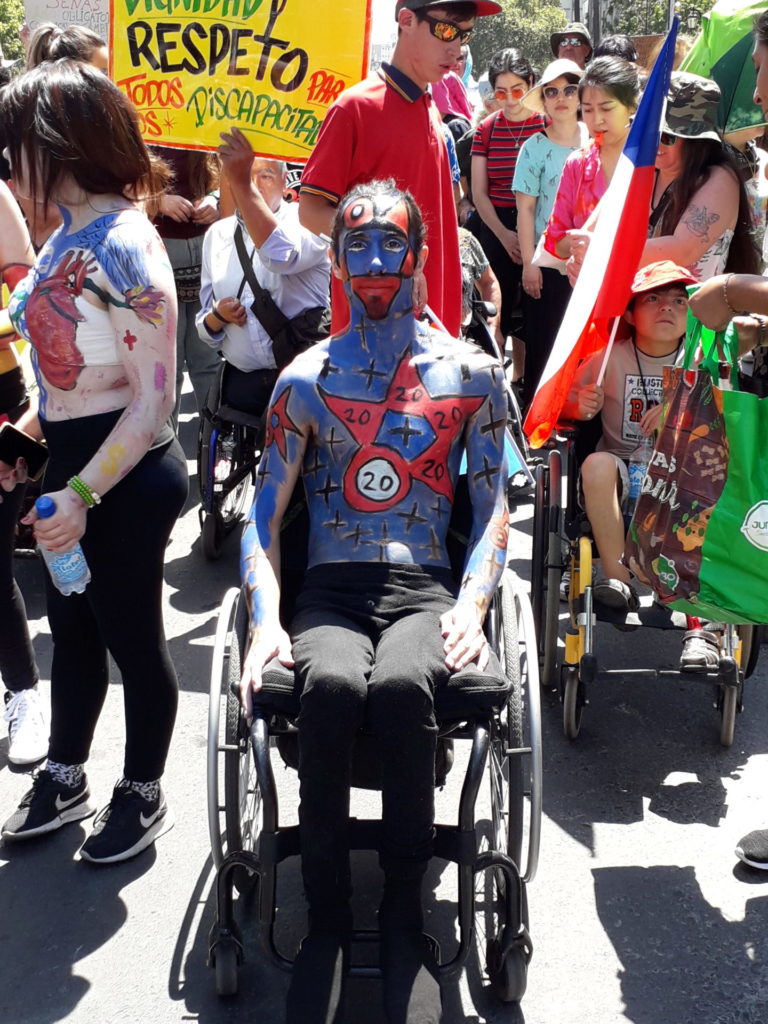As part of the series “Gender and sexualities in pandemic”, we interviewed Diego Ramos, an activist for the rights of people with disabilities, including the exercise of their sexuality. Diego has just graduated from the University of Chile, teaches workshops on sexuality and is also a model, making his body available.
After a circus accident, in which he begins to move around in a wheelchair, he learns to live with what they call “disability” and to claim the right to be different, establishing links with groups of people with disabilities to highlight that the problem is not them, but a system based on a supposed normality that marginalises all those who cannot “produce”. Thus, “non-disabled” and “productive” people are challenged to discover their own differences in order to build a society where diversity is valued more than uniformity.
The first time I heard about him was at the IV Latin American Humanist Forum in May 2019, where he gave a workshop on “Functional dissidence and sexuality”, as part of the activities of the group ‘Diversidad Humana’, which organised several activities and discussions on sexual and functional dissidence.
Later, on 3 December, International Day of Disabilities, we met in a massive march of all disabilities (visual, hearing, physical, functional, cognitive, mental, etc.) that started in Santiago from the ‘Gabriela Mistral’ Centre and went all the way to ‘La Moneda’. It was exciting to see all these people accompanied by their families and loved ones, empowered and demanding better conditions for inclusion. At that time, Diego went with his colleagues from ‘Acción Mutante’. I went to cover it as a reporter for Pressenza, and the photo in this article (which you can read here in Spanish) was taken on that occasion.
Afterwards we have seen him on multiple occasions doing virtual workshops as part of the collective ‘Ortiga Venérea’ and also on his own, about sexuality in people with disabilities. For example, talking about ludia and sexual enjoyment with Japi Jane, the well-known sex toy and lingerie entrepreneur.
Diego also contributed a text to the powerful book “Muros que hablan: Memoria gráfica del despertar social en Santiago de Chile”, edited by myself and Riccardo Marinai of Pressenza Chile, which we launched at the Museo del ‘Estallido Social’ a few months ago and which is about to have a second edition.










